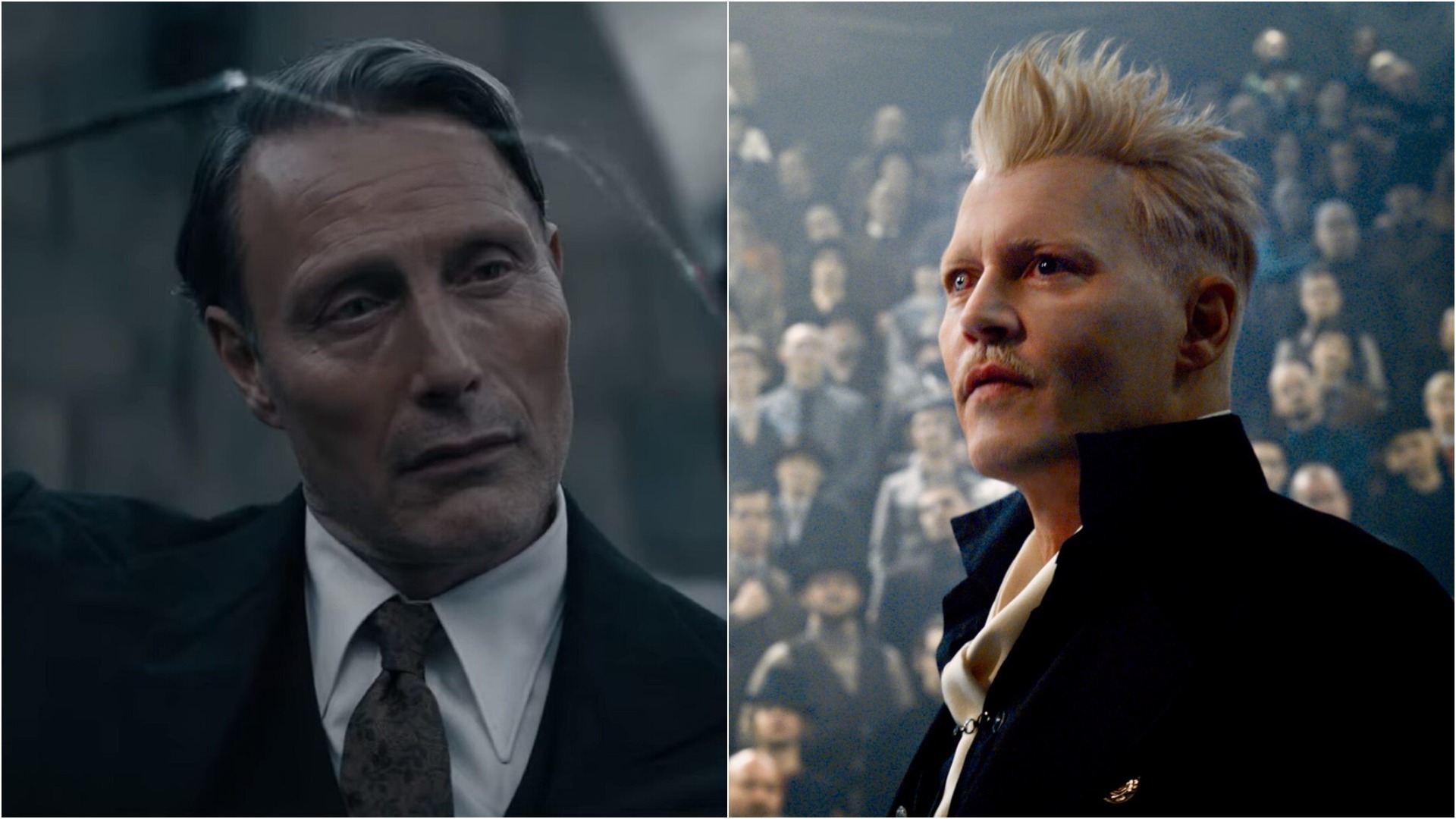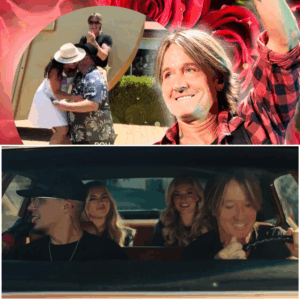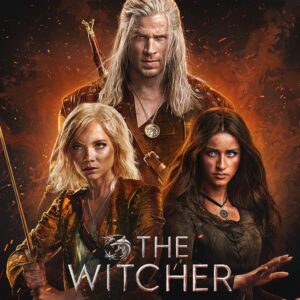In November 2020, the entertainment world was rocked by a stunning announcement: Johnny Depp, one of Hollywood’s most recognizable stars, had been asked to resign from his role as Gellert Grindelwald in Warner Bros.’ Fantastic Beasts franchise. The decision, which came just days after Depp lost a high-profile libel case in the U.K., sent shockwaves through the industry and sparked intense debate among fans and critics alike. Compounding the controversy, Warner Bros. was simultaneously facing backlash over another project, The Witches, due to its portrayal of disability, leading the studio to issue a public apology. As of April 28, 2025, with Depp continuing his career resurgence—currently filming Day Drinker with Penélope Cruz—this bombshell moment remains a pivotal chapter in his journey, highlighting the complex interplay of personal struggles, studio politics, and public perception in Hollywood. Here’s a deep dive into the events that led to Depp’s exit, Warner Bros.’ response, and the broader implications for the entertainment industry.
The Libel Case That Changed Everything
Johnny Depp’s departure from Fantastic Beasts was directly tied to a legal battle that unfolded in the U.K. In April 2018, British tabloid The Sun published an article referring to Depp as a “wife-beater,” accusing him of assaulting his ex-wife, Amber Heard, during their tumultuous two-year marriage. Depp, then 57, sued the newspaper’s publisher, News Group Newspapers (NGN), and its executive editor, Dan Wootton, for libel, seeking to clear his name. The trial, which took place over the summer of 2020 in London, captivated global audiences with its explosive revelations about Depp and Heard’s relationship, including allegations of substance abuse, violent outbursts, and mutual toxicity.
On November 2, 2020, Judge Andrew Nicol delivered a damning verdict, ruling that The Sun’s claims were “substantially true.” The judge found that 12 of Heard’s 14 allegations of physical assault by Depp were credible to the civil standard, concluding that the tabloid had not committed libel by labeling Depp a “wife-beater.” The ruling was a significant blow to Depp, who had maintained his innocence throughout the trial. In a statement posted on Instagram shortly after the verdict, he announced his intention to appeal, writing, “The surreal judgement of the court in the UK will not change my fight to tell the truth, and I confirm that I plan to appeal. My resolve remains strong, and I intend to prove that the allegations against me are false.”
The timing of the ruling could not have been worse for Depp’s involvement in Fantastic Beasts. He had played Grindelwald in the first two films of the franchise—2016’s Fantastic Beasts and Where to Find Them and 2018’s The Crimes of Grindelwald—and was set to reprise the role in the third installment, which had begun filming in September 2020. But on November 6, just four days after the verdict, Depp announced on Instagram that Warner Bros. had asked him to resign from the franchise, and he had “respected and agreed to that request.” Warner Bros. confirmed the news in a statement to Entertainment Weekly, saying, “Johnny Depp will depart the ‘Fantastic Beasts’ franchise. We thank Johnny for his work on the films to date. Fantastic Beasts 3 is currently in production, and the role of Gellert Grindelwald will be recast.”

A Studio Under Pressure: The AT&T Factor
Depp’s exit from Fantastic Beasts was not a decision Warner Bros. took lightly. The studio had previously stood by the actor despite years of controversy surrounding his personal life. When Heard first made her allegations public in 2016, filing for divorce and a restraining order, fans of the Harry Potter universe voiced concerns about Depp’s casting as Grindelwald. Yet, both Warner Bros. and J.K. Rowling, the creator of the Wizarding World and screenwriter of the Fantastic Beasts films, defended him. In a 2017 statement on her website, Rowling wrote, “Based on our understanding of the circumstances, the filmmakers and I are not only comfortable sticking with our original casting, but genuinely happy to have Johnny playing a major character in the movies.” Director David Yates and producer David Heyman echoed her support, dismissing Heard’s claims as unverified at the time.
So what changed in 2020? According to sources cited by Variety and The Hollywood Reporter, the key factor was the influence of AT&T, which had acquired Warner Bros.’ parent company, Time Warner, in 2018. The merger brought a new corporate culture to the studio, one that was far less tolerant of controversy. The U.K. court’s ruling, which legally validated the “wife-beater” label, created a PR nightmare for Warner Bros., especially in a post-#MeToo world where studios were increasingly held accountable for their talent’s behavior. “The judge’s ruling makes it a lot easier for news outlets to use similar depictions when referring to Depp’s stormy two-year marriage to actress Amber Heard, creating a PR headache for the studio,” The Hollywood Reporter noted. Faced with the potential for ongoing backlash, Warner Bros. decided to cut ties with Depp, a move that sources say Rowling did not resist, despite her earlier support.
Depp had filmed only one scene for Fantastic Beasts 3 before his exit, but his departure came with a financial twist. Due to a “pay-or-play” contract—a common agreement for A-list stars—he was entitled to his full eight-figure salary, estimated at $16 million, regardless of whether he appeared in the film. The contract lacked a morality clause, meaning Warner Bros. had no legal recourse to withhold payment, even after asking him to resign. The role of Grindelwald was later recast, with Mads Mikkelsen stepping in, and the film’s release was pushed from November 2021 to July 2022 due to the production changes.
The Witches Backlash: A Double Blow for Warner Bros.
Depp’s firing wasn’t the only controversy Warner Bros. was grappling with in November 2020. At the same time, the studio faced significant backlash over its latest release, The Witches, a remake of the 1990 film starring Anne Hathaway as the Grand High Witch. Directed by Robert Zemeckis, the movie drew criticism from disability advocates for its depiction of the witches, who were shown with missing fingers and toes, a trait some felt perpetuated harmful stereotypes about limb differences. The Paralympic Games and activists like Amy Marren voiced their concerns, arguing that the portrayal could exacerbate stigma and bullying for those with disabilities.
The backlash was swift and vocal, prompting Warner Bros. to issue a rare public apology. In a statement to Variety, the studio said, “We are deeply saddened to learn that our depiction of the fictional characters in The Witches could upset people with disabilities, and regret any offense caused. In adapting the original story, we worked with designers and artists to come up with a new interpretation of the cat-like claws that are described in the book. It was never the intention for viewers to feel that the fantastical, non-human creatures were meant to represent them.” The studio also pledged to work with the disability community to address the issue, but the damage was done, adding to Warner Bros.’ growing list of PR challenges.
The timing of the Witches controversy, coinciding with Depp’s exit from Fantastic Beasts, put Warner Bros. in a precarious position. The studio was already navigating backlash over J.K. Rowling’s anti-trans comments, which had sparked calls to boycott the Fantastic Beasts franchise, and a viral video of co-star Ezra Miller appearing to choke a woman in Iceland earlier that year. “It’s a tough break for Warner at a time when another decision once made, no doubt, in reasonably good faith now looks destined to have ugly ramifications for its future slate,” The Guardian observed, highlighting the studio’s struggle to manage multiple controversies at once.
Fan Reactions: A Divided Response
The news of Depp’s firing from Fantastic Beasts elicited a polarized response from fans. Many celebrated the decision as a step toward accountability in Hollywood, particularly in the wake of the #MeToo movement. “Johnny Depp was finally fired from the Fantastic Beasts franchise,” posted @Hello_Tailor on X on November 6, 2020, noting the timing of the announcement on a day when other news dominated headlines. Others, however, felt the move was unfair, arguing that Depp had been unfairly vilified without a criminal conviction. Posts on X, such as one from @BowerxDepp in 2021, claimed that Warner Bros. had “fired Johnny Depp (despite it’s been proven he was a victim of domestic violence) and keeps his abuser employed,” referring to Heard’s role in Aquaman. These sentiments reflect the deep division among Depp’s fanbase, a divide that persists as he continues his legal battles with Heard, including a defamation suit in Virginia.
Critics also questioned Warner Bros.’ consistency, pointing out that other controversial figures in the Fantastic Beasts franchise, like Rowling and Miller, remained involved despite their own scandals. “It’s astounding in a post-#MeToo world that a major studio like Warner Bros. would continue to film with Depp even as he was accused of assault in the courts,” TIME wrote in 2020, arguing that the studio should cancel the franchise altogether given its “minefield of scandals.” The debate underscored broader questions about how Hollywood handles allegations of abuse and the selective nature of accountability in the industry.
A Lasting Impact: Depp’s Career and Beyond
For Johnny Depp, being asked to resign from Fantastic Beasts was a significant setback, but it did not mark the end of his career. He continued to work on independent projects, such as Minamata (2020), and has since seen a resurgence, with roles in Jeanne du Barry (2023) and the upcoming Day Drinker. His fans remain fiercely loyal, as evidenced by the support he received during his 2022 defamation trial against Heard, which he won, restoring some of his public image. However, the Fantastic Beasts episode highlighted the challenges of navigating personal controversies in an industry increasingly sensitive to public perception.
Warner Bros., meanwhile, faced ongoing scrutiny for its handling of the situation. The studio’s decision to fire Depp while retaining other controversial figures raised questions about its priorities, with some arguing that the move was more about optics than ethics. “Could the forced departure of Depp be a precedent-setting example of things to come, or is it just a fluke in the Hollywood tale of profit over people?” Den of Geek pondered in 2020, a question that remains relevant as the industry continues to grapple with issues of accountability.
The unexpected bombshell of Johnny Depp’s firing from Fantastic Beasts, coupled with Warner Bros.’ apology for The Witches, marked a tumultuous moment for the studio and its Wizarding World franchise. For Depp, it was a painful chapter in a career marked by both brilliance and controversy, but his support for his daughter, Lily-Rose, and his continued work show a resilience that resonates with fans. As the entertainment world evolves, this episode serves as a reminder of the complex dynamics at play in Hollywood, where personal struggles, studio decisions, and public opinion collide in ways that can shape careers and legacies for years to come.




